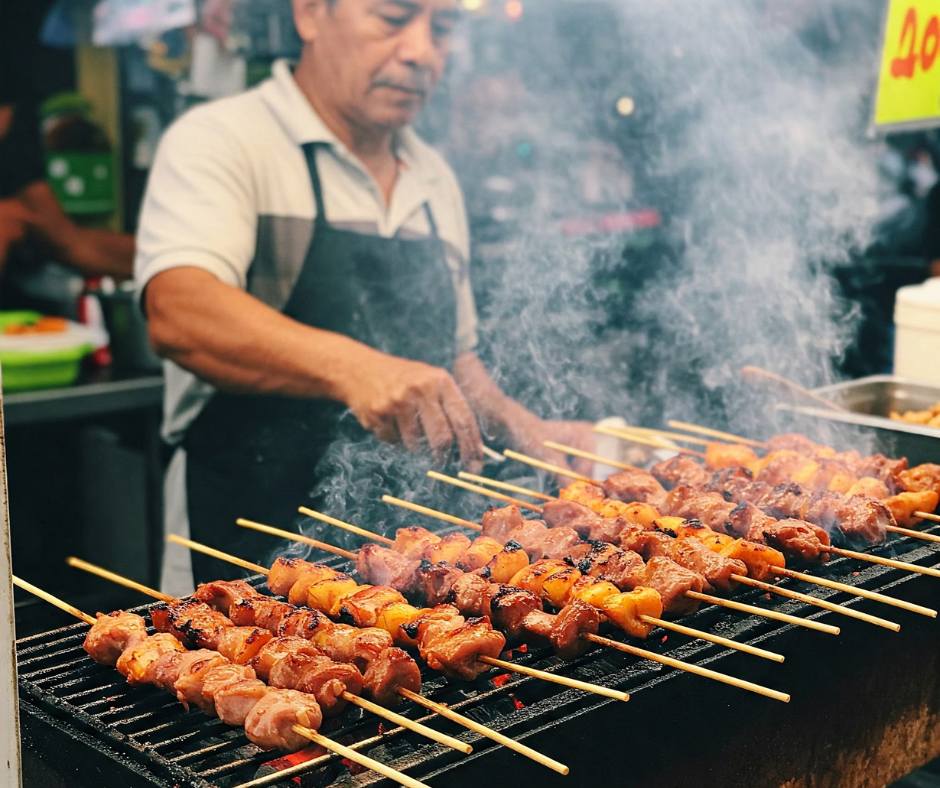“Operation Midway Blitz,” the Chicago area efforts by Immigration Control and Enforcement (ICE) intentionally and actively terrorizing Chicagoans, is targeting informal workers including street vendors and day laborers.
It is a scenario played out across the country, including cities in New York, Oregon, Colorado, Iowa and Texas..
Recently ICE used tear gas, shot pepper spray bullets and flash bang grenades and arrested protestors outside the ICE facility in Broadview, just outside of Chicago. On the second day of protests, my husband and I who have lived in Chicago for 35 years, joined the protestors who gathered.
Witnessing van after van pulling into the Broadview facility with heavily armed and fully masked ICE workers pulling out of the van young men, teens and older adults was frightening.
This action came slightly more than a week after ICE agents in Franklin Park, a Chicago suburb, killed restaurant worker and father of two, Silverio Villegas-Gonzales, who has no criminal record, after a vehicle stop.
The scale of these attacks risk erasure of a profoundly important cultural presence. Contrary to the promise to rid the country of what President Donald Trump calls the “worst of the worst” including drug dealers, murderers and rapists, this is an attack on vulnerable workers who have migrated for work to advance their and their family’s futures and find themselves in informal work situations.
As a public health professor and community-based participatory researcher, for more than a decade I have explored community-led solutions to occupational health concerns in Chicago neighborhoods with high proportions of informal workers.
Their work is outside of formal employment structures with standardized pay and worker protections. Informal workers’ work conditions are generally considered precarious as they are exposed to unique physical, social and environmental hazards. Workers typically engage in informal work because formal work is not available often due to citizenship status, language, ability or related contextual factors.
People migrate for work as pay allows for basic needs to be met. It is a protected human right to seek safety, refuge and the opportunity to work.
Informal workers often engage in work outside, in public spaces. They are exposed to unsafe environmental conditions, police and public harassment, and lack standard work conditions such as access to a bathroom.
Well-recognized in their urban neighborhoods, these workers include street food vendors selling tamales, shaved ice and nopales, and day laborers who stand in the parking lots of Home Depot or Menards waiting for a work opportunity.
In order to make a living for themselves and their families (much of their pay is sent to family members in their country of origin), day laborers get into cars or vans not knowing where they are being taken, what the work will be, if they will get paid and when they will return.
The work is often extremely precarious and hazardous and there is a high rate of exploitation in which day laborers engage in work that goes unpaid knowing they have no recourse.
The Centers for Disease Control and Prevention recognize work as a social determinant of health. Work typically impacts health through three pathways: hazardous working conditions (physical, chemical, biologic and psychosocial); work-stressors, and risks to material deprivation (income, wealth, housing or neighborhood hardship).
Little is known about the impacts of the work conditions of these informal workers on their health. However, our research found that among a sample of precariously employed workers in a neighborhood those in the highest precarity category were Latinx and born outside the United States.
The research found the most employment precarity experienced is significantly associated with self-reported exposure to chemical and biological hazards, physical hazards, and slip, trip, strike, fall, trap or crush hazards at work.
To be sure, undocumented immigrants face social and economic challenges in the United States. However, undocumented immigrant workers such as street vendors and day laborers play a critical role in the day to day live of neighborhoods.
Street vendors are often up by 3 a.m. and on the street by 4 a.m. to provide breakfast (tamales) for their neighbor workers headed to factory work.They are still on the street when these workers head home for dinner more than 12 hours later.
They anticipate their customers and have their orders prepared in advance. They are a constant presence in their communities, serving as the neighborhood eyes and ears, assuring students to get safely to and from school. Their false criminalization and the violent extraction of their lives from the fabric of our communities will have lasting harm.
Undocumented immigrants contribute to the economy as they pay taxes. In Illinois alone, in 2022, undocumented immigrants paid an estimated $1.55 billion in federal, state, and local taxes, according to the Institute on Taxation and Economic Policy.
This past month many informal workers have been unable to work given the administration’s attack on immigrants. These workers work hand to mouth. A workday lost impacts the family concretely – loss of food for family meals, school supplies and risk of loss of housing.
Research has shown that immigrants, including undocumented immigrants, are less likely than those born in the U.S., to commit violent crime. Waves of higher immigration have not seen increases in crime rates, but rather reduced crime rates.
The tragic shooting recently at an ICE facility by a sniper in Dallas killing two detainees is being blamed by the administration on “rhetoric” opposing ICE. These acts plus amped up immigration raids across the country contribute to heightened fear and uncertainty.
Neighborhoods across the country under attack. Those who support this vicious assault on communities have been misguided. Immigrants are core to the American story. This is an assault on the fabric of our communities.
Dr. Jeni Hebert-Beirne is a Professor of Community Health Sciences at the University of Illinois Chicago (UIC) School of Public Health and is Public Voices fellow of The OpEd
